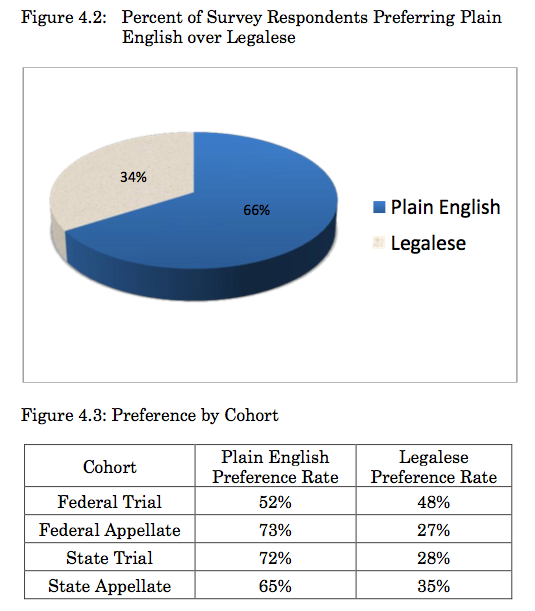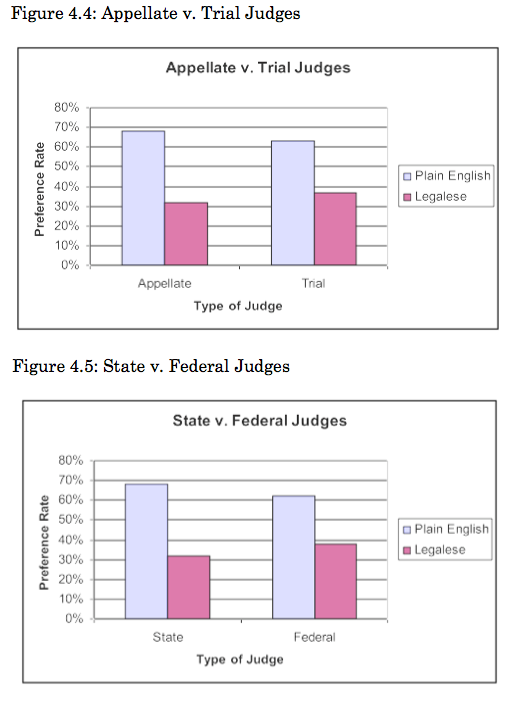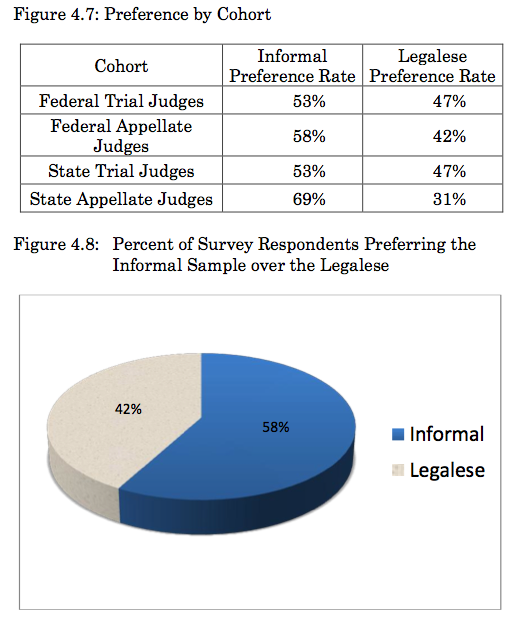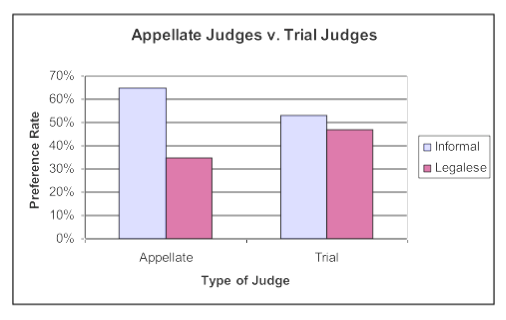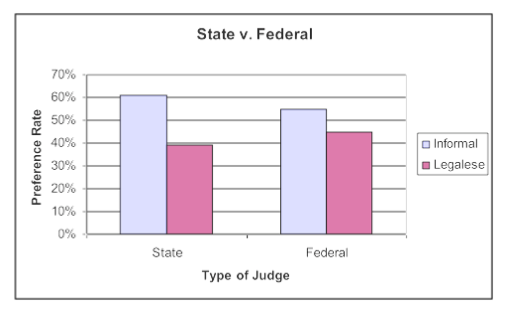I was looking through some old law review articles I’ve downloaded (don’t judge – I’m not the only one) and I came across an interesting survey and results on judges’ preferences regarding writing styles entitled: PERSUADING JUDGES: AN EMPIRICAL ANALYSIS OF WRITING STYLE, PERSUASION, AND THE USE OF PLAIN ENGLISH by Sean Flammer.
The article rightly points out that with trials and oral arguments decreasing, written advocacy is largely becoming the only advocacy undertaken for clients. As such, writing skills are of the utmost importance for lawyers.
In the past few decades, a number of scholars, lawyers, and judges have pushed for a shift to “Plain Language” in legal writing; arguing that it is more effective and persuasive than older, stilted “Legalese” writing. But lawyers, more so than most, are resistant to change. Plain language has been slow in gaining traction. Perhaps lawyers feel that if they don’t “lawyer up” a document and make it confusing to read, clients won’t feel like they’re getting their money’s worth. More likely it’s just a matter of old dogs, new tricks.
In an effort to provide an empirical basis for adoption of Plain Language, Flammer conducted a survey of judges on the persuasiveness of two writing samples – one Legalese and one either Plain Language or Informal:
My goal was to determine if judges found Plain English more persuasive than Legalese. A lawyer‘s objective is to persuade; therefore, the most important question is whether the use of Plain English will help the lawyer achieve that objective. I sent 800 surveys to judges across the United States. I sent 200 surveys to each of four different cohorts:
- federal trial judges;
- federal appellate judges;
- state trial judges;
- and state appellate judges.
Each judge received two excerpts from a potential pleading (the ―writing samples), a cover letter, a survey, and a self- addressed, stamped envelope. Half of each cohort received a Plain English sample and a Legalese sample and the other half received an Informal sample and a Legalese sample. The argument in each sample was essentially the same. The surveys asked the judges to indicate which of the two writing samples they thought was more persuasive.
Judges Overwhelmingly Prefer Plain Language
Plain Language v. Legalese
And in case you were wondering if it is an issue of old dog, new tricks:
Whether a judge practiced in a rural or urban area had no correlation with whether judges preferred Plain English. State and federal judges preferred Plain English at about the same rate, and so did trial and appellate judges. A judge‘s age, years of experience as a judge, years of experience in the legal profession, or gender was not correlated with whether a judge preferred Plain English or Legalese.
Judges, by a fairly large margin, prefer Plain Language to Legalese. But before you begin to completely alter your writing style, some caveats to keep in mind from the article and one of my own:
- Female judges overwhelmingly preferred the Informal sample 83 percent of the time. If you are writing for a female judge, embrace Plain Language.
- Rural trial judges were the only group in the entire survey to prefer Legalese more than another writing style. Be careful with Plain Language if you are in the country.
- Judges almost universally dislike the use of contractions. Avoid them.
- Know your audience, know your Judge. If a particular Judge is old-fashioned, set in their ways, and prefers Legalese – stick to Legalese. It doesn’t matter if you prefer Plain Language, it is in your client’s interest to conform to the Judge’s preferences.

